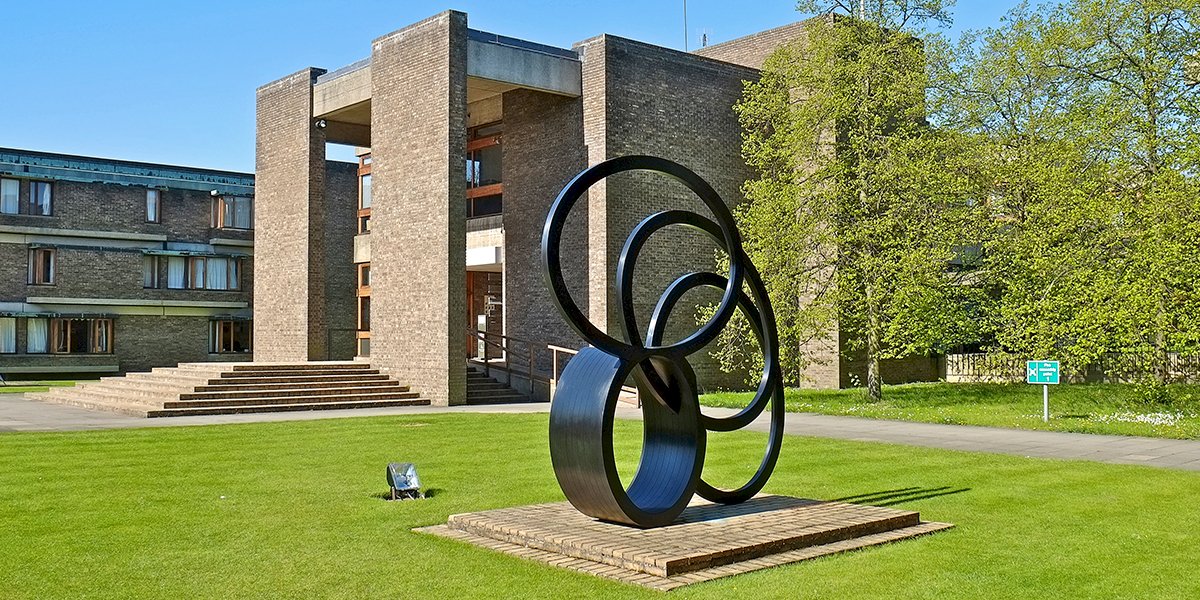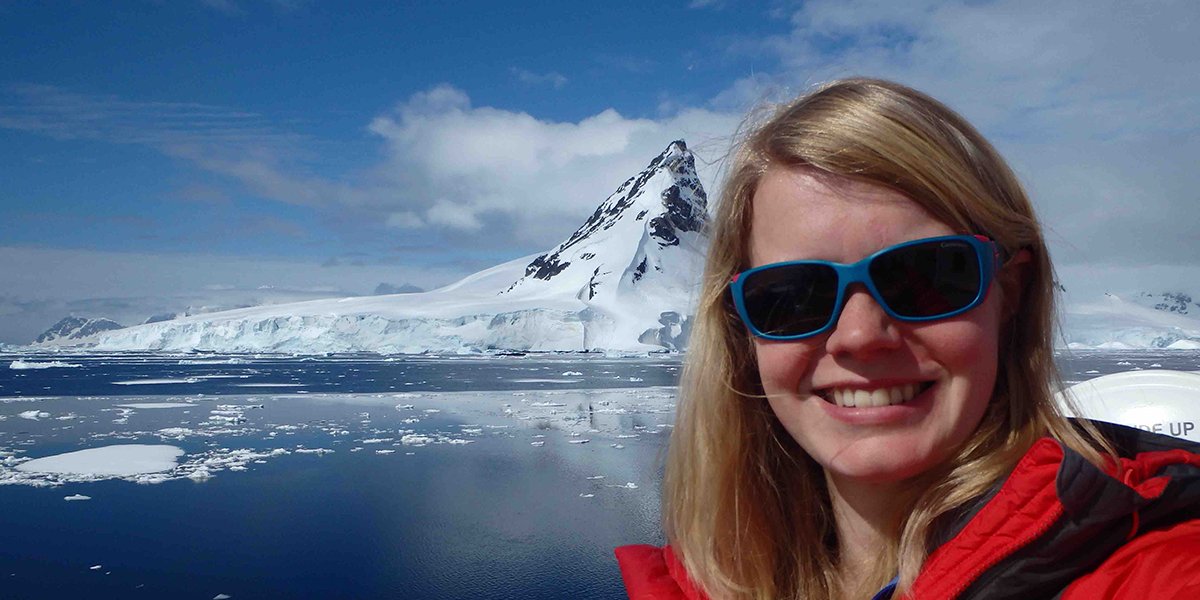From the seas to the skies - Alison Davies
Alison Davies (Churchill 2010) was surprised to discover that a degree in Natural Sciences could lead to an unconventional career working as an operational meteorologist for the Royal Air Force (RAF).
It’s gratifying to feel that your work is useful. The one disadvantage is that if your forecast isn’t perfect, the pilots will definitely let you know!
Alison Davies
I came to Cambridge from Glasgow, which was quite a geographical and cultural change for me. Cambridge’s flatness was quite strange and I discovered that Birmingham was considered ‘north’ and Scotland barely featured on people’s mental maps. This took a little getting used to, but did provide some amusement. If I met somebody new and they had a friend who was Scottish, I always got introduced. I ended up meeting a whole range of new Scottish people.
My parents met while they were both studying at Cambridge so I was lucky to have had the Cambridge myths dispelled by them while I was growing up. Visiting Cambridge made me excited about going to university and definitely influenced me to apply there.
Cambridge life
The opportunities to be had at Cambridge were endless. The hardest part was deciding which activities to take part in. I settled for trying rowing, it was just too much of a stereotype to ignore. I had a fantastic time rowing in the women’s boat for Churchill. A highlight was bumping in the May bumps – a great way to end my first year.
I was really keen on flying so I joined the Cambridge University Air Squadron (CUAS) run by the Royal Air force (RAF). Thankfully they were not bothered that I didn’t have any military experience, nor did they mind that I wasn’t particularly interested in ironing or drill. I learnt to fly, which was an incredible opportunity, and one that I would thoroughly recommend. Through CUAS I also got the chance to do a whole range of outdoor activities such as climbing, scuba diving, hiking and caving, as well as building up my leadership and organisational skills. It was a great complement to the formal education I was getting and, as it turned out, put me in good stead for my future career.
But it wasn’t all about having fun. Being a Natural Scientist meant that my schedule was intense with lectures Monday to Saturday, hundreds of supervisions and labs, and endless equations to be understood and memorised. University was a busy, fun and exciting time for me. Even now I am astonished at how much I managed to fit into those four years at Cambridge. Even my summers were jam-packed. I spent one summer in Switzerland working at a research institute, which was a fantastic experience. There were also college grants to help fund other educational projects. I managed to get one from my college, Churchill, to attend the International Polar Year Field School in Svalbard.
An unexpected career
It was naturally a bit of a shock to finish university and have to move on. I hadn’t been sure what I wanted to do when I left, so I decided to go travelling for a few months with a friend from Cambridge. I then worked as a cook on a dive boat off the north coast of Scotland while I applied for various jobs. I was keen to do something practical, preferably outdoors, doing work that was science-related. The job that caught my eye, after a recommendation from a friend, was being a meteorologist with the Met Office. This involved some practical work such as observations, briefings and looking after equipment, and a science - meteorology. Luckily the Met Office advertised the role regularly, along with an initial training programme, so I put in my application.
I had always thought that being a weather forecaster meant that you had to be on TV, which didn’t appeal at all. However, as I learnt during my six months of training at the Met Office headquarters, there are many other areas in which you can work. A large number of meteorologists work at RAF bases scattered around the country, producing forecasts and monitoring the weather to help pilots carry out their tasks and keep them safe. I decided this was the job for me, and two and a half years later I’m working as an operational meteorologist based in North Yorkshire. I enjoy that every day is different and that the work can often be fast-paced. I also love interacting with customers, giving briefings and being asked questions by the pilots. It’s gratifying to feel that your work is useful. The one disadvantage is that if your forecast isn’t perfect, the pilots will definitely let you know!
Around the world
My time with the University Air Squadron proved useful as recently I joined the Mobile Met Unit (MMU), an RAF sponsored reservist unit made up of Met Office employees. The MMU are used on exercises and operations when the RAF need meteorologists with military training. This means I’m often working in tents with minimal equipment and limited data, which makes the work more challenging but also more rewarding. There’s also the opportunity to travel to a variety of different places in the UK and further afield. I’ve only been in the MMU a year but have already been to Germany to help with a helicopter exercise and to Shetland to support the building of a radar station on a remote island, in what was atrociously windy weather.
The other really fantastic thing I have had the opportunity to do since university is to go to Antarctica with the Homeward Bound programme. This project aims to give women a voice to positively influence global decision-making in the future. The application process was quite competitive so I was thrilled to get a place. The programme culminated in a three-week voyage around the Antarctic Peninsula. While being immersed in the wilderness of Antarctica we worked on our leadership skills and strategic capabilities as well as simply gazing in wonder at icebergs and laughing in amusement at penguins. Having dreamt about going to Antarctica for years, this was an amazing experience.
Talking about Antarctica is a great way to spark children’s interest in science and so I have been using this experience as the basis for outreach work in schools. I hope that by doing this I am encouraging some Cambridge Natural Scientists of the future.
Read about the 2018 Homeward Bound expedition.
Alison obtained a MSci in Natural Sciences and attended Churchill College.


